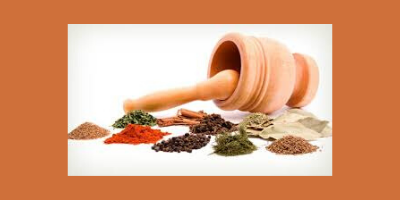In countries like Greece, Italy and Spain, olive oil benefits aren't surprising. These countries know the beneficial effect on high blood cholesterol levels, cardiovascular diseases, earaches, constipation, stomach upset, dry skin and stretch marks.
Although the olive tree originated in Asia, it has been cultivated for over 3,000 years in Mediterranean countries, where much of the olive crop is used to make olive oil. In this process, olives are pitted and ground to a thick pulp. The pulp is then pressed to remove the juices, which are placed in a centrifuge to separate the water from the oil.
Olive oil is a very hardworking member of the oil family, able to help multiple health conditions safely and easily from home. This oil is known as "liquid gold" and really lives up to its knick-name.
Olive oil has long been thought to contain healing properties, and has been used for centuries for just that purpose. In recent years studies have shown that olive oil is rich in vitamin nutrients and has multiple healing effects on the body when used both internally and externally.
Taken topically, olive oil is an excellent remedy for thinning hair, actually re-growing the lost hair, and causing the hair to grow faster and healthier than ever. The same process works wonders for finger and toe nails as well. Using olive oil topically, can help skin problems such as: Sunburn, dermatitis, fungus infections, rashes, cuts and poison ivy.
Another astonishing topical use for olive oil is arthritis. Patients suffering from arthritis sometimes claim that the oil, when rubbed into the sore spot, instantly relieves the pain, and these results are long-lasting ones. Muscular tensions can also be erased by rubbing in olive oil. The results are instant and remarkable.
Olive oil can prevent skin cancer, help you lose weight, prevent heart attacks and strokes, (by thinning the blood) and boost your good cholesterol while lowering the bad cholesterol, prevent ear aches and infections, soften calluses, relieve irritated skin around the eyes, heal frostbite, flatten wrinkles, strengthen weak fingernails, reduce scarring, treat indigestion, heal stomach ulcers, and jelly fish stings, rejuvenate damaged hearing, soften rough skin, and reverse hair loss.
OLIVE OIL AND THE DIGESTIVE SYSTEM
The human body easily absorbs olive oil. This means that the body absorbs the good ingredients such as vitamin E and phenols, which have anti-oxidizing properties and prevent the oxidization of fatty tissue.
Many physiologists suggest that the easy absorption of olive oil by the body is mainly due to the fact that it is highly monounsaturated. Another important element is chlorophyll.
Olive oil facilitates the cleansing of the gall bladder.
Olive oil is not only easy to digest but it also helps the digestion of other fatty substances because it helps the secretions of the peptic system and stimulates the pancreatic enzyme lipace.
The good peptic qualities of olive oil are also due to its good organolyptic characteristics, which are formed by a large group of volatile ingredients. These volatile ingredients are combined together to give olive oil its particular aroma and distinctive taste.
OLIVE OIL AND CHOLESTEROL
Olive oil consumption has a very positive effect on blood cholesterol. We can distinguish cholesterol in two types: HDL cholesterol (good) and LDL cholesterol (bad). Good cholesterol is transported from the cells to the liver where it is secreted with the help of high-density lipoproteins. Bad cholesterol is transported by low-density lipoproteins into the cells. HDL – good cholesterol has a positive influence on the body especially on the heart. On the contrary, LDL – bad cholesterol has a negative effect and is a cause of artillery sclerosis and heart disease. Olive oil limits the oxidizing of this cholesterol because it is rich in anti-oxidizing agents.
OLIVE OIL FOR THE WHOLE FAMILY.
When nutrition supplies the body with the necessary and useful ingredients in the correct balance it has a positive effect in child development but also in the preservation of the health of older people. A major cause for the degeneration of the cells – and their eventual destruction – is the accumulation of free radicals, which are produced by the oxidization of the fatty tissues in the body.
Vitamin E, phenols and other antioxidizing substances protect the human body from the negative effects of free radicals. Olive oil contains a high percentage of phenols and vitamin E and as a result helps delay the aging process.
SOME MORE HEALTH BENFITS OF OLIVE OIL
* Pure, extra virgin olive oil is not only a light and delicate addition to many wonderful dishes; it is one of the most health-promoting types of oils available.
* Olive oil is rich in monounsaturated fat; a type of fat that researchers are discovering has excellent health benefits. Just 1 ounce of extra virgin olive oil contains 86, 2% of the daily value for monounsaturated fat, plus 17.4% of the fat from vitamin E, a fat soluble anti-oxidant that protects these healthily fats from damage by free radicals.
* In the Mediterranean countries of Europe people eat a lot of olive oil. It is common to eat bread or toast just dipped in olive oil. Because of the daily use of olive oil the people that live in these countries suffer less from heart diseases than people of other countries in Europe.
* The use of olive oil has a positive effect on the cholesterol level in our blood. Because olives grow in a warm environment and the fruit has to protect itself from heat and bright sunshine, olives contain a lot of phenol-like substances. These substances could possibly play a role in the prevention and cure of thrombosis and arteriosclerosis.
* Research has shown and proven that olive oil reduces blood pressure.
* Olive oil may be the key reason that eating a Mediterranean diet reduces breast cancer risk, suggests a laboratory study published in January last year.
* Studies in diabetic patients have shown that healthy meals that contained some olive oil had better effects on blood sugar even than healthy meals that were low in fat.
* As far as other diseases go, regular use of olive oil has been associated with low rates of asthma and rheumatoid arthritis.
* Certain substances in olive oil have also been shown to be helpful for protecting the cells of the colon from cancer-causing chemicals. While most other fats are associated with an increased risk of colon cancer, olive oil is actually associated with a reduced risk of this disease.
It is often said that olive oil causes problems with the stomach or intestines. This is simply not the case. Olive oil is very easy to digest and mild for the intestines!
You can do a little test. If you spill some olive oil on your hands you can easily wash it off. If disappears fast in the sink and you don't need a lot of hot water and detergent to wash it away. Because your body is like a glass of water it reacts the same.
If you have eaten some olive oil your body will evaporate it within 1 ½ hours via your pores. This means your body can handle it easily and does not have to waste any energy to digest it.
Olive oil was also used by our Prophet Muhammad S.A.W. And has great medicinal value.
It's an excellent treatment for skin and hair, delays old age and treats inflammation of he stomach.
It helps with gastric and duodenal ulcers.
Olive oil is n excellent emollient and its external application softens the skin and crusts in eczema and psoriasis.
It is good oil for massage and is an important ingredient of many ointments and plasters.
In one Hadith, Prophet Muhammed S.A.W. advised people to use olive oil for food and for massage because it was obtained from a blessed tree.
A few quick serving ideas.
* Use olive oil in your salads.
* Puree roasted garlic, cooked potatoes and olive oil together to make delicious garlic mashed potatoes.
* Drizzle olive oil over healthy sautéed vegetables before serving.
YES U CAN FRY IN OLIVE OIL
Olive oil, as with any fatty substance, deteriorates during the frying process especially if it is used over and over and if the frying temperature is very high. High temperature destroys the good ingredients of any oil while it creates harmful agents for the liver, the arteries and the heart. It is important however to take into consideration that these harmful agents are less likely to be created in olive oil than in all other known vegetable oils and this is because olive oil has a different composition. It contains a high percentage of oleic acid, which is much more resistant to oxidization than the polyunsaturated acids, which are found in large amounts in seed oils. But more importantly olive oil contains natural anti-oxidizing agents such as phenols and vitamin E. Of course it should be noted that during frying olive oil smokes at lower temperatures than is the case with seed oils. The reason is that olive oil is a natural fruit juice and contains a certain quantity of olive pulp. This disadvantage can be dealt with if we keep the frying temperature low. This practice should be followed regardless of which type of oil we use. This analysis should be convincing enough to help us revise our conventual wisdom as to the suitability of olive oil for frying purposes.





0 Comments